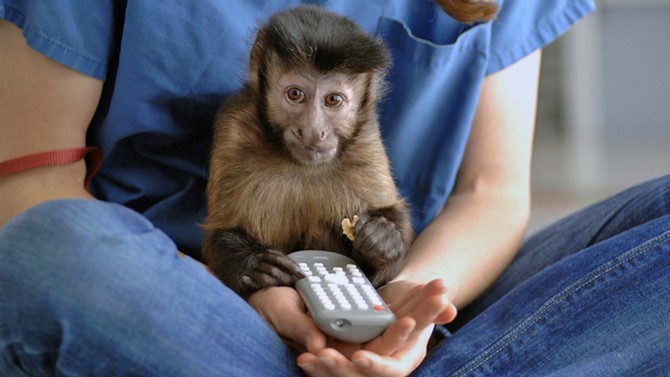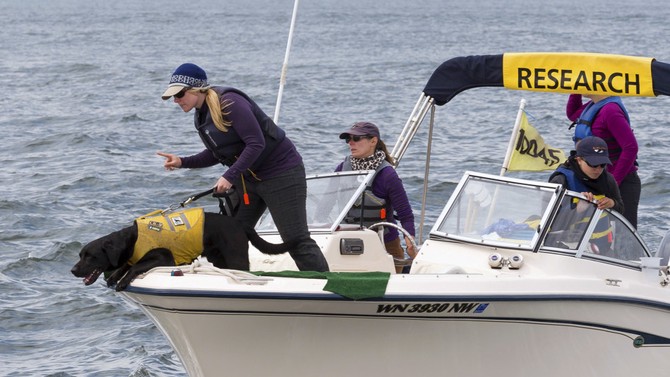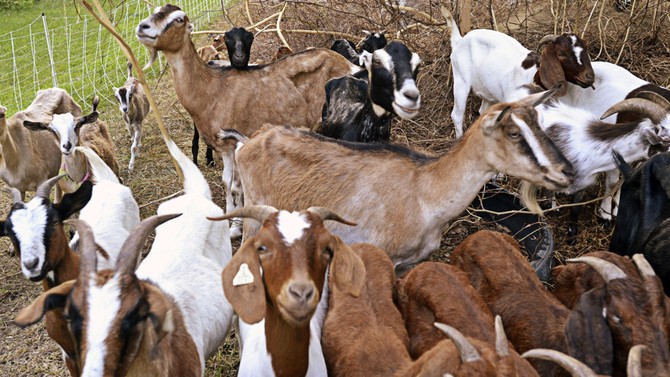3 Animals With Weird But Amazing Jobs
Because sometimes you need the right dog—or goat or monkey—for the job.
By Zoe Donaldson

Photo: Jacqueline M. Bowen
Monkeys Do
Standing less than two feet tall, capuchin monkeys are known for their dexterity, easygoing ways—and total adorableness. But the capuchins at Helping Hands, a nonprofit in Boston, are also hardworking heroes qualified to assist people who have spinal cord injuries and limited mobility. Monkeys in training attend "college" for up to five years—learning how to fetch a phone, open a bottle of water, even adjust reading glasses—before they're paired with grateful companions, free of charge. Bananas? We think not.

Photo: Jane Cogan
Scats and Dogs
The University of Washington's Conservation Canines program may revolve around excrement, but it's nothing to pooh-pooh. The pioneering nonprofit trains dogs to detect the droppings of threatened and endangered wildlife (caribou, white-tailed deer, Pacific pocket mice); this helps researchers keep tabs on species' diets, migration patterns, stress levels and more—without disrupting their daily life. One super-sniffer is Tucker, a 12-year-old black Lab who spends almost every day of his summer on a boat catching the scent of orca droppings. His handlers say he does a whale of a job.

Photo: Cary Wolinsky, Trillium Studios
Saving Grace
As owner of Browsing Green Goats, an eco-friendly landscaping service, Mary Bowen travels the East Coast with a hungry herd of about 40 goats (15 of which are rescues) to clear overgrown brush from historical sites, wineries and golf courses. Because Bowen's munch-tastic machines—there's Joy, Cinnamon and Polly, to name a few—prefer to dine on pesky weeds like poison ivy, kudzu and wisteria, they offer an environmentally sound (not to mention really cute) alternative to potentially harmful herbicides.
From the April 2016 issue of O, The Oprah Magazine

